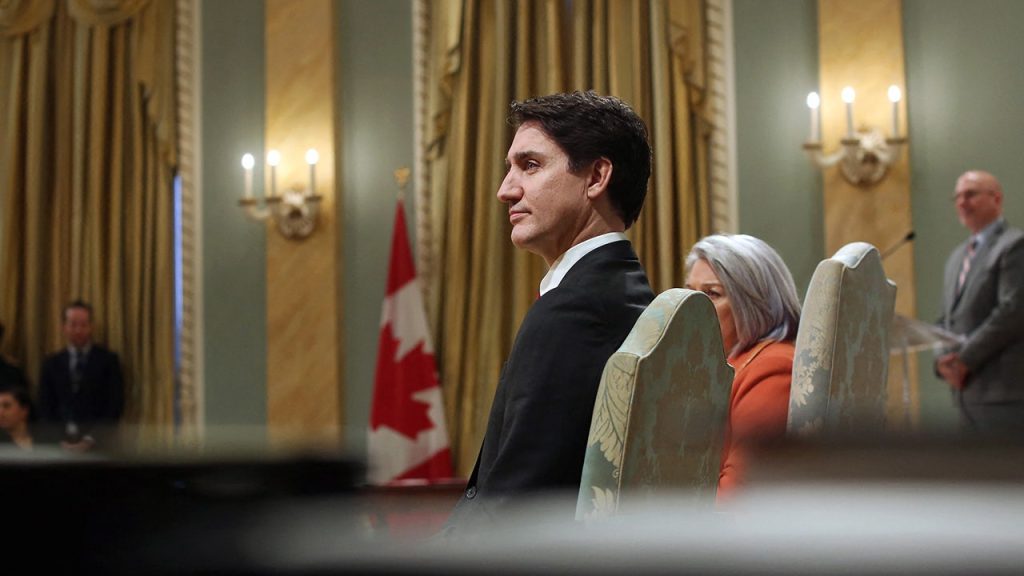The Globe and Mail reported on Sunday night that Canadian Prime Minister Justin Trudeau is expected to resign from his position, with the resignation likely to occur before a national caucus meeting on Wednesday. Trudeau’s popularity in Canada has been on the decline with a disapproval rate of around 68%, and only 28% of Canadians supporting him. This potential resignation comes amidst a national election planned for October, and the country facing various challenges including a housing crisis, declining per-capita GDP and high inflation.
Trudeau has faced challenges in recent months, including a no-confidence vote in September that failed to remove him from office. Finance Minister Chrystia Freeland announced her resignation in December, stating that the only “honest and viable path” forward was to leave the Cabinet. This was followed by New Democratic Party leader Jagmeet Singh announcing plans to present a formal motion of no-confidence on January 27. Trudeau’s personal choices, such as being seen dancing at a Taylor Swift concert in Toronto while a riot occurred in Montreal, have also sparked criticism from his opponents.
The potential resignation of Trudeau would come after he became Prime Minister in 2015 and amidst a turbulent political climate in Canada. The announcement also follows the resignation of Finance Minister Chrystia Freeland and plans for a no-confidence motion put forward by New Democratic Party leader Jagmeet Singh. Trudeau’s declining popularity and challenges faced by the country, such as a housing crisis and high inflation, have contributed to the reported decision to step down.
The news of Trudeau’s expected resignation has sparked speculation and interest in Canada as the country prepares for a national election later in the year. With Trudeau facing challenges to his leadership, including a failed no-confidence vote and resignations from key allies, his potential resignation could have significant implications for the country’s political landscape. The reported decision also comes amidst backlash over some of Trudeau’s personal choices, further adding to the pressure on his leadership.
As Trudeau’s popularity continues to decline in Canada, the reported resignation would mark a significant development in Canadian politics. With a potential change in leadership on the horizon, the country faces uncertainty and speculation about the future direction under a new leader. Despite facing challenges and criticism, Trudeau’s decision to step down would signal a new chapter for Canada and its political landscape as the country navigates through a period of transition and change.
The reported resignation of Canadian Prime Minister Justin Trudeau has stirred political tensions and discussions in the country, with implications for the upcoming national election and the future of Canadian leadership. Trudeau’s tenure as Prime Minister has faced challenges and criticism, leading to speculation about his potential resignation. As Canada prepares for a period of transition, the decision to step down could have far-reaching consequences for the country’s political landscape and future direction under new leadership.


